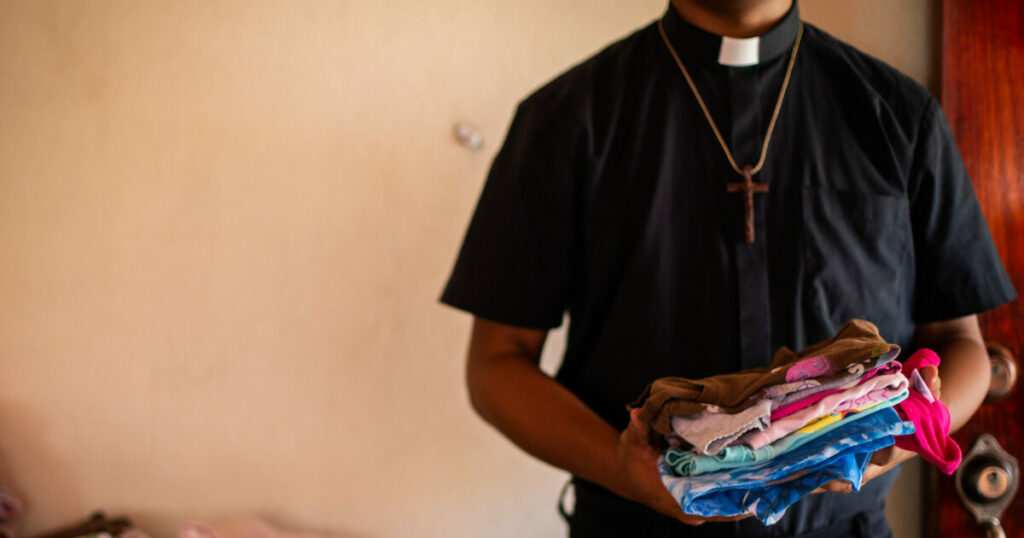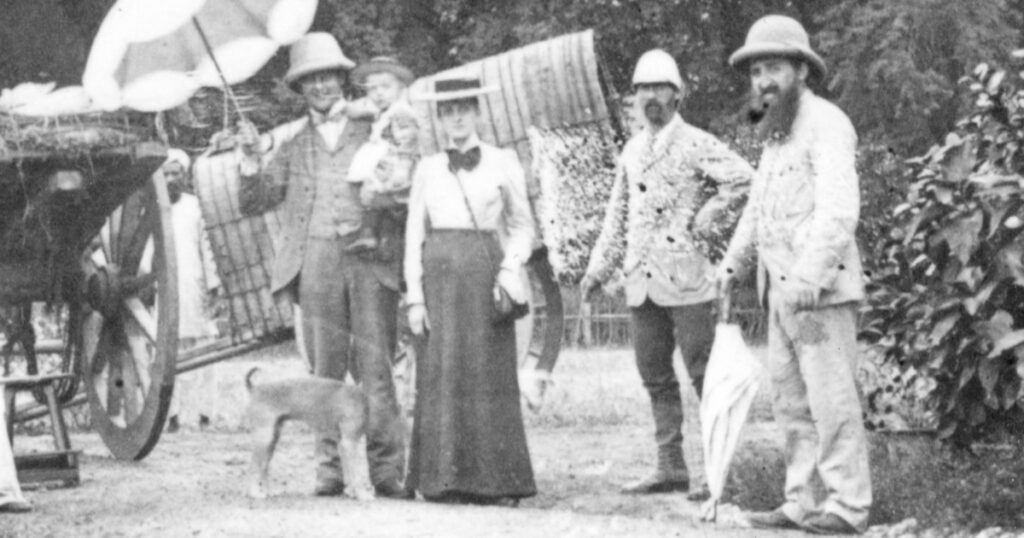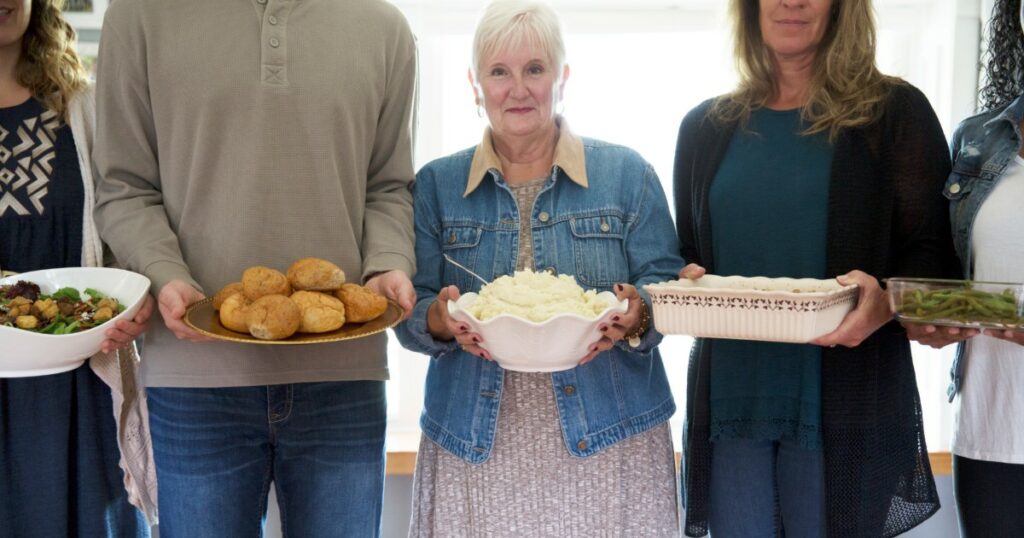by Megan K. Mertz
“Eighty percent of the pastors have great difficulties with everything to do with medical care and food. … Each one goes through this same situation,” said the Rev. Miguelángel Perez, pastor of a congregation in the city of Barquisimeto, Venezuela, and president of the Lutheran Church of Venezuela (ILV), a partner of The Lutheran Church—Missouri Synod (LCMS).
Right now in Venezuela, millions of people — including Perez and other Lutherans — are being impacted by the unprecedented humanitarian crisis plaguing their country. Approximately 4 million Venezuelans have fled to other countries, and more are leaving every day. In one Lutheran congregation, 75 members have already left.
Yet Perez and 14 other Lutheran pastors are braving hunger, danger and discomfort to bring Christ to their neighbors.
“In the midst of everything that one may be going through in Venezuela, to be a pastor is to be at the feet of Christ, to be His hands, His mouth … we can bring comfort to a family that is disconsolate,” said the Rev. Eliezer Mendosa, director of the ILV seminary, the Juan de Frías Institute.
A complicated crisis
Both Perez and Mendosa called the situation in their homeland “complicated,” an understatement considering the intertwined roles of politics and economics at the center of this crisis.
The growing strain first became apparent to the outside world in 2013, when oil prices declined and the country’s longtime president, Hugo Chávez, died and was replaced by a less popular successor. Since then the situation has spiraled out of control, and a nation that once led the region in education and affluence plunged into an economic freefall.
Venezuela is currently experiencing one of the worst cases of hyperinflation in recent memory, which has caused prices for staples like sugar or cooking oil to rise overnight — if they are available at all. The International Monetary Fund estimates that inflation in Venezuela will reach 10 million percent in 2019. In contrast, the United States has an inflation rate of just 2 percent, according to the organization.
As their money becomes worthless, Venezuelans face food scarcity, poverty and rising crime rates, even as infrastructure such as electricity and public transportation deteriorates.
As malnutrition escalates, so does sickness. Diseases formerly considered preventable, easily managed or even eradicated now run rampant in a country where hospitals are not receiving the basic supplies they need to operate, and many skilled professionals have left to find greener pastures.
“I have a 4-month-old daughter and cannot get vaccines for her, and that’s scary,” Mendosa said, noting that he is concerned she could contract one of the deadly diseases now spreading throughout the country. Even finding food is a challenge. “To tell the truth, you must look for [food] with your nails practically, [and] if there are things to eat, you must divide between all, since it is not enough.”
Mercy for the household of faith
As Venezuelan refugees fleeing this crisis began settling in other countries in Central and South America, some found their way into Lutheran churches in their new homes, where they shared stories about what life was like in their homeland.
Members of the Confessional Lutheran Church of Chile (ILC) immediately wanted to help their Venezuelan brothers and sisters in Christ, and they identified a need they could meet: the shortage of prescription medications, which are difficult to obtain in the current situation. The ILC worked through the Venezuelan government’s stringent regulations so that they could begin filling prescriptions written by Venezuelan doctors for Lutherans 3,000 miles away.
Most of these medications — which come from a government-approved list of drugs that can legally be brought into the country — go to help people manage chronic, life-threatening conditions, such as diabetes, high blood pressure, epilepsy and dementia.
In 2018, the LCMS gave a grant of $9,500 through Disaster Response to assist the ILC with this project. The Chileans have sent regular shipments since then, with funding assistance from the LCMS and other organizations. Unfortunately, as the situation in Venezuela continues to deteriorate, several of their trusted courier services have ceased operations in the last few months.
As new opportunities emerged to bring Christ’s mercy to suffering people, the LCMS mission team in the Latin America region developed a three-part plan to (1) support Lutherans in Venezuela; (2) continue to provide medications; and (3) help refugees now living in other countries.
To support Lutherans in Venezuela, LCMS began providing small monthly stipends to the Venezuelan pastors to help them feed and clothe their families.
“This small monthly subsidy frees the pastors to be attentive to the needs of their members,” said the Rev. Herb Burch, LCMS area facilitator for Belize, Honduras, Guatemala and Venezuela. “They were receiving the equivalent of $15 on average monthly, and this was insufficient for them to live on. They had to seek outside means to help their families, as most of their congregational members also suffer from the runaway inflation.”
The LCMS is also providing support for workshops on women’s health and teen pregnancy prevention, a mercy center that provides food and blankets for people in the hospital, and transportation assistance to help Perez visit congregations across the country. Another grant helped build rooms on church property for people who have loved ones in the hospital.
In addition, the LCMS has brought the Venezuelan pastors to the Dominican Republic on two separate occasions for a week of meetings and encouragement. These trips have given the pastors a chance for respite and theological study through the Luther Academy, as well as the opportunity to stock up on diapers, soap and other essential items that they can’t access or afford at home.

“Miguelángel Perez, in speaking to some of his brother pastors from the Anglican and Presbyterian churches in Venezuela, told how the LCMS is helping Lutheran pastors in the country. They indicated their sister churches in other countries offered no such assistance,” Burch said.
Third, the LCMS has developed intentional outreach for Venezuelan refugees, with the goal of connecting them to our Lutheran missions in Chile, Peru, the Dominican Republic and Spain. When refugees arrive, often by foot and with few possessions, they don’t have a place to live or a job lined up. This outreach effort helps provide temporary food, housing assistance and spiritual care to refugees.
The effort also helps refugees find new jobs. Venezuela was a prosperous nation prior to its current crisis, and refugees often have specialized job skills. However, many don’t have the guidance necessary to get jobs in those fields in a new country. For this reason, Lutherans in Latin America are helping refugees navigate new work requirements and get their documents and certifications in order.
Joy amid suffering
Perez said the assistance of these sister church bodies “has been of great support and blessing for us.”
He and the other pastors know that their brothers and sisters in Christ in Argentina, Chile, Uruguay, Brazil, the Dominican Republic, the United States and elsewhere are behind them, offering prayers and support as they are able.
And even in the midst of this suffering, God is faithful. Despite their growling stomachs, despite the increased risk to their safety, despite the loss of the comforts to which they were accustomed, both men spoke of joy.
“As for the joys, it is basically the motivation of the remaining members who have not migrated, who enter in a spirit of optimism, hope, that sooner or later things will change, that this is a process that is happening for the good of the church,” said Perez.
In these trying times, Mendosa continues to find comfort in the words of Ps. 46:1: “God is our refuge and strength, a very present help in trouble.”
“This is what we pray, that God continues to be our refuge, our strength, and … that this challenge really is an opportunity to continue serving to help our brothers, the sheep that really belong to Christ and not us,” he said.
This article originally appeared in print in the August 2019 issue of The Lutheran Witness.






